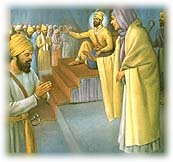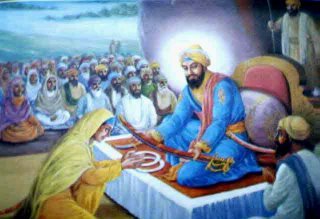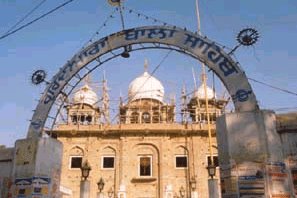Outcry in SA over 'racist' video
 The alleged victims vomited after being made to eat fouled food |
Several white students in South Africa face criminal charges after allegedly forcing black campus employees to eat food that had been urinated on. A video has surfaced which appears to show the students instructing five elderly workers to drink beer and perform athletic tasks.
At one point, the University of Free State employees are apparently forced to eat food which has been urinated on.
The rector at the university has strongly condemned the video.
Students and staff joined a protest march at the campus in Bloemfontein, and student groups say they are now planning to call nationwide anti-racism demonstrations.
The video was reportedly recorded in protest at moves to integrate black and white students in the same residences at the University of the Free State.
The BBC's Mpho Lakaje says the university is known for having predominantly white students since the days of apartheid.
In recent years it has encountered difficulties trying to integrate people from other racial groups, and the latest incident is viewed by many as a clear indication of racial intolerance, he says.
'Upset'
The video shows five black people allegedly being instructed by a group of white students to down full bottles of beer, reports our correspondent, who has watched it.
 Students rallied near the campus, and other protests are planned |
The university workers are then led to a playing field where they are told to display their athletic skills.
But it is the final extract of the film that has angered members of the public. It shows a white male urinating on food, and then - shouting: "Take! Take!" in Afrikaans - apparently forcing the campus employees to eat the dirty food, and causing them to vomit.
The alleged perpetrators are current or former students at the University of the Free State, say reports.
Its rector, Frederick Fourie, told the BBC that he was "extremely upset about the incident".
"We are having a management meeting. And there's a strong condemnation of this from everybody concerned," he said.
The university says it has begun procedures to suspend the students allegedly implicated in the video, and says the alleged victims have received psychological support.
Protests
On Wednesday, hundreds of black students and workers from the institution handed over a list of demands to management.
Siviwe Vamva, from the South African Students Congress, said the group was planning to call a national strike on Thursday 6 March to raise the profile its anti-racism campaign.
He said racism was also still a problem in other universities.
"It's not only the University of Free State," Mr Vamva said.
"We are saying that all these issues must be brought forward so that all the people of South Africa can see that racism is still a dominant feature in South African society."
The South African Institute of Race Relations has said this incident and several others over the past month could threaten general improvements in race relations since the end of apartheid.
The institute also condemned the shooting of four black people by a white youth, and the decision by the Forum for Black Journalists to evict a white journalist from a meeting.








